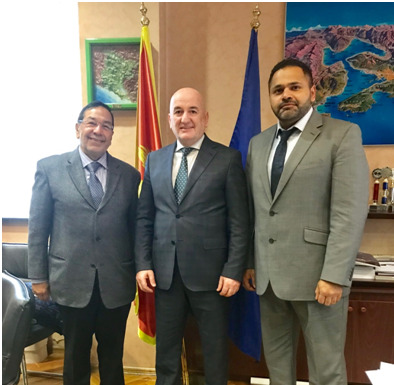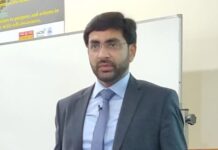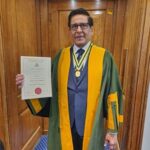Q&A with Salim Rehmatullah
When did you first visit Montenegro?
My first trip to Montenegro was in November 2017. I was a little nervous to start with as I didn’t know what to expect from my first visit to the Balkans. All I knew about Montenegro was that it featured in one of the Bond Movies and was an ex-Yugoslav state.
Why did you go?
During a visit to Madagascar I met Murabbi Raza-Aly Hiridjee who had been to Montenegro with WF President Dr Asghar Moledina. He was extremely impressed with its beautiful Adriatic coast, its popular resorts and town such as Budva and Kotor. Murabbi Raza-Aly had also identified great opportunities for investments and future potential for the Khoja community.
I was convinced, and arranged my first trip to Podgorica (Montenegro’s capital) with Murabbi Raza-Aly.
What was your first impression?
I thought I’d love it. I knew it would be beautiful. But I had no idea that it would have the kind of beauty to knock me off my feet and render me speechless! The scenery in Montenegro was tantalising: the Bay of Kotor from every direction, storybook-perfect walled towns, mystical islands, a mountain-edged coastline, Tara Canyon, Porto Montenegro and the list goes on.
Was it easy to communicate?
The people speak Serbian but like to call it Montenegrin. It’s not a difficult language to learn however in major cities most people speak English. Montenegro’s economy relies heavily on tourism hence in the south of the country it’s almost a requirement to have multilingual staff.
Are there Muslims in Montenegro?
The old Ottoman empire left its mark on the life of the local people. Linguistic origins, traditional dishes, melodies and even morning coffee habits were inherited by Balkan people from their southern conquerors.
According to the 2011 census, Montenegro’s 118,477 Muslims make up 20% of the population. Most of the Muslim families come from the area of Ulcinj, Bijelo Polje, Berane and Pljevlja, offering a proud example of religious tolerance and cultural co-existence.
How about business / investment opportunities?
Montenegro is a competitive and dynamic destination with clear strategic objective of developing a sustainable tourism portfolio whilst protecting its dramatic, beautiful natural resources. It’s a young, stable democracy with an open economy, favourable political climate and the potential to emerge as one of the most attractive tourist destinations in Europe.
The last few years have seen Montenegro’s economic performance improve dramatically through the adoption of the Euro as the legal tender and significant investment in infrastructure, especially tourism, energy, water and transport links. Further investments of €3.2 billion are planned along the Montenegrin coast.
Montenegro has one of the lowest corporate and capital gains tax rates in Europe (9%), low barriers to entry for new businesses, property rights and a price-competitive, educated young labour force. It became a full member of the World Bank, IMF and EBRD in 2007, WTO in 2012, and NATO in 2017. It has applied for EU membership.
According to the World Bank, Montenegro is one of the fastest-growing economies in the Balkans and is quickly becoming a key destination for important global industries due to its strategic position. It offers unique potential for investors seeking mobility, safety, security, opportunity and increased quality of life.
Sectors of interest include manufacturing, medical, entertainment, transport and logistics, ski resorts and language schools. Lower-level opportunities include cafés and restaurants, AirBnB, dry cleaners, mechanics and automatic car washes.
Do they have a Citizenship Programme?
Montenegro launched a Citizenship by Investment programme in October 2018, starting with a limit of 2,000 applicants from non-EU countries.
What opportunities are there for our community members?
There are plenty of opportunities for anyone wishing to invest in real estate or tourism. A number of Khoja brothers have joined me in the last 12 months and invested in various projects in Montenegro. Some of us have already seen a good return on investment.
I feel this is the best time to invest in Montenegro. Land prices are rising every month and by 2020 some of these opportunities will no longer be there as it is a small country with limited prime land to buy.
We have offices and local staff on the ground. We are looking into starting a Khoja Centre in the capital city. We also held a summer camp for Khoja boys in Podgorica throughout July, accompanied by teachers from Najaf.
What would you recommend for anyone interested in investing or moving to Montenegro?
We would be more than happy to facilitate and recommend any investment opportunities and legal process for anyone considering investing in Montenegro.
Feel free to email me via info@khojanews.org














